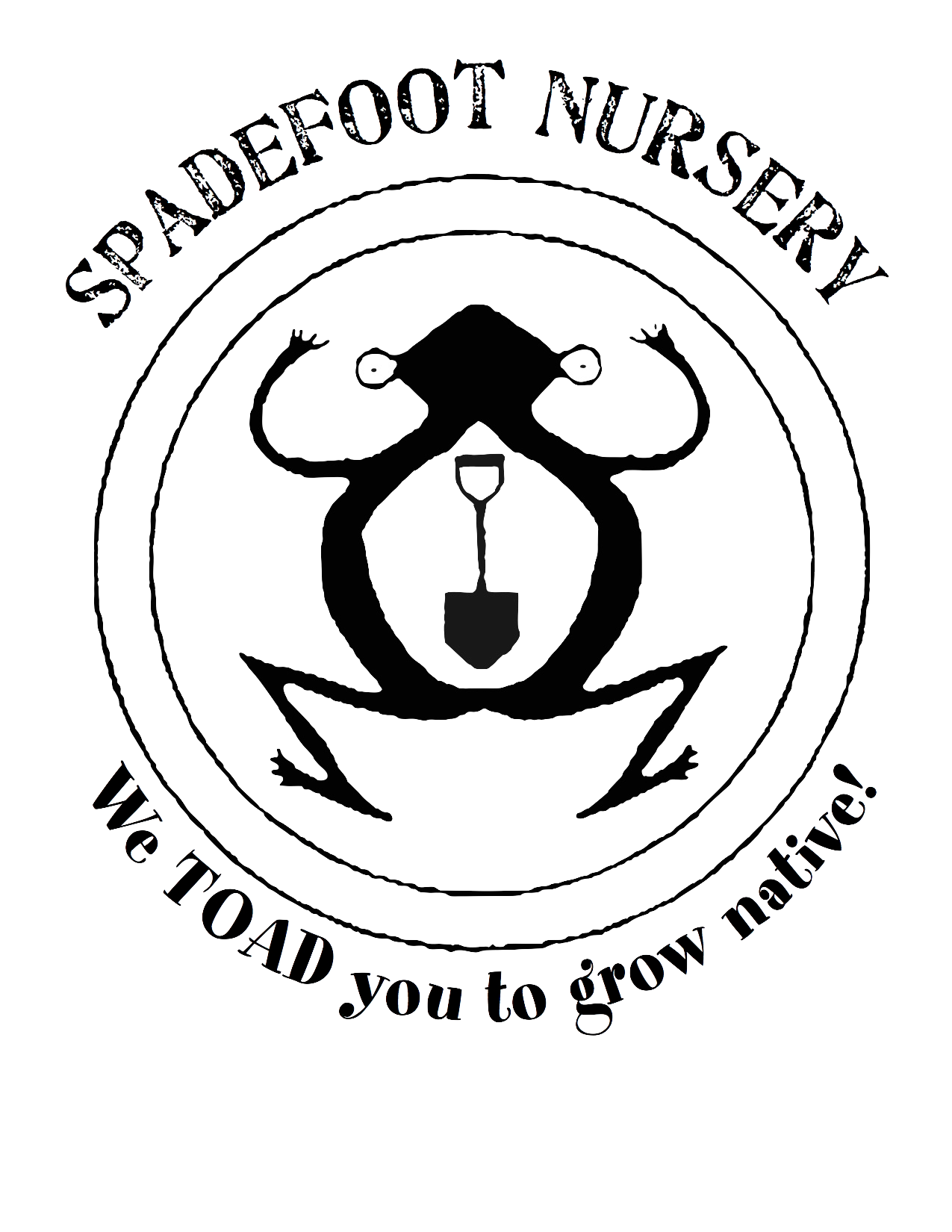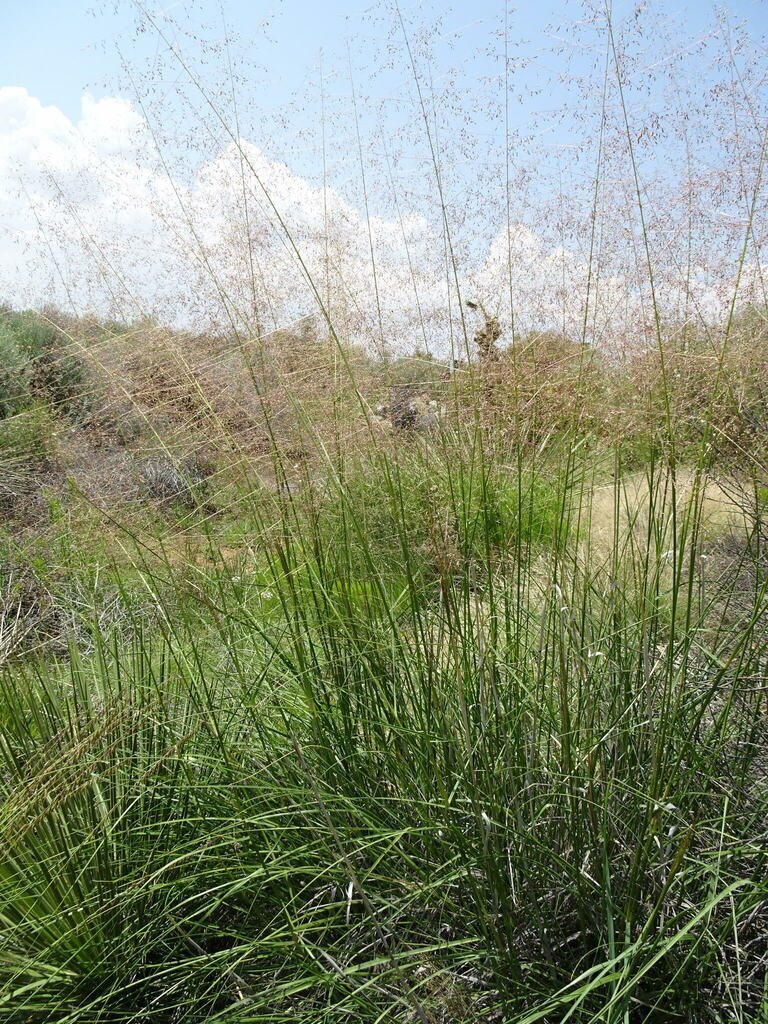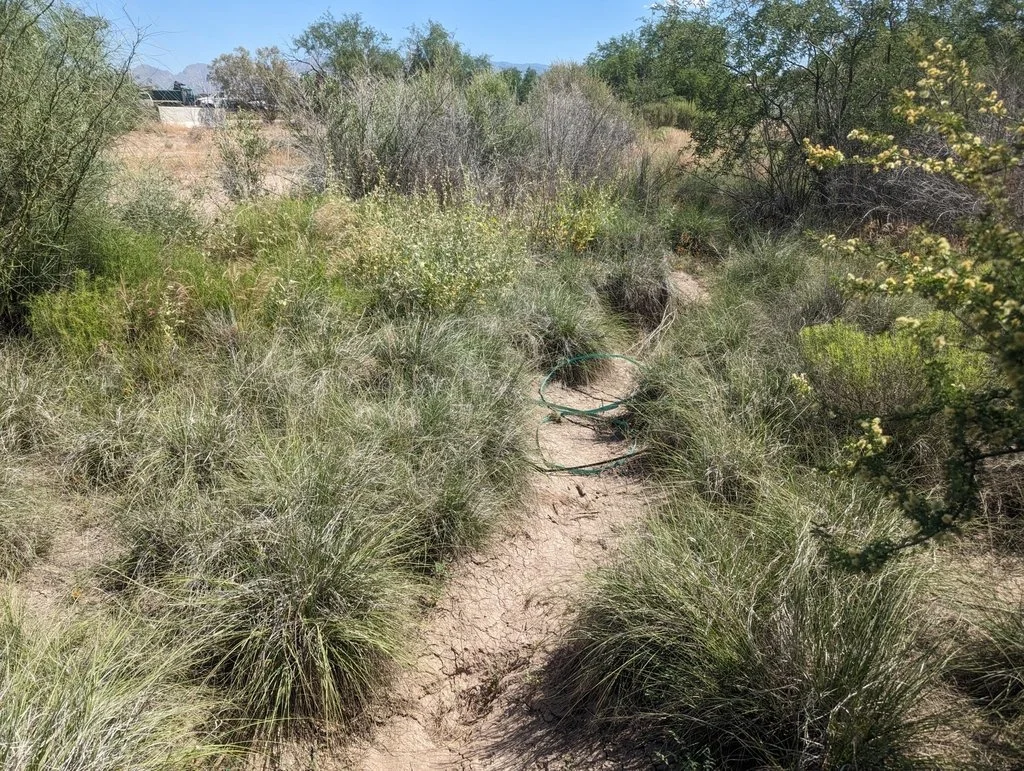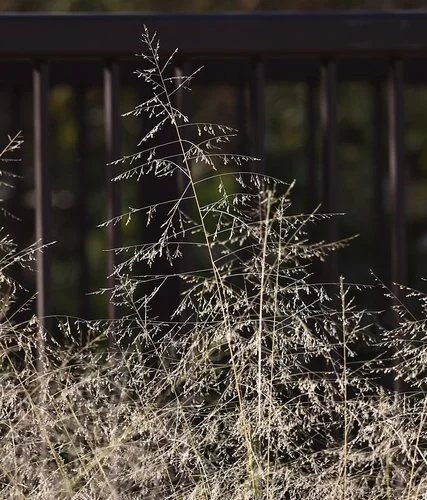Alkali Sacaton
Sporobolus airoides
Family: Poaceae
Tufted perennial grass growing in hard and dense clumps usually about 2-3’ tall or more with open, airy seed panicles. A little wider than tall. This grass is semi-deciduous.
Full to part sun. Can exist off irrigation once established in areas where water collects but best looking on irrigation. If the plant goes dormant in winter (depending on how much cold it experiences) cut back in about February.
Fair to good for large grazing animals, poor when dry. Large seeded and loved by granivorous birds. This large grass is very important habitat for many organism.
Seeds used as food by various Native American groups; ground and mixed into a porridge, combined with with corn meal or used for flour.
Sporobolus is Greek for "seed-caster", while airioides means it is like Aira, a genus of Old World grasses. There are 226 species of Sporobolus which grow in tropical, sub¬tropical, and warm-temperate regions throughout the world.
Found on sandy plateaus, washes, bottomlands and flats, often in alkaline soils from 2,500-6,500 ft. in most of western North America: British Columbia south to California and east to Texas; south into northern Mexico.
Photo of Sporobolus airoides by julieluetzelschwab, iNaturalist
Sporobolus airioides on SEINET
Alkali sacaton, as the name implies, occupies sandy, alkali soils and settles the soil. This species is important for restoration work. Photo by Jaxon Lane, iNaturalist
The airy and large flower/seed heads come out pinkish red and fade to tan. They rise high above the foliage. Photo byu lonnyholmes, iNaturalist



